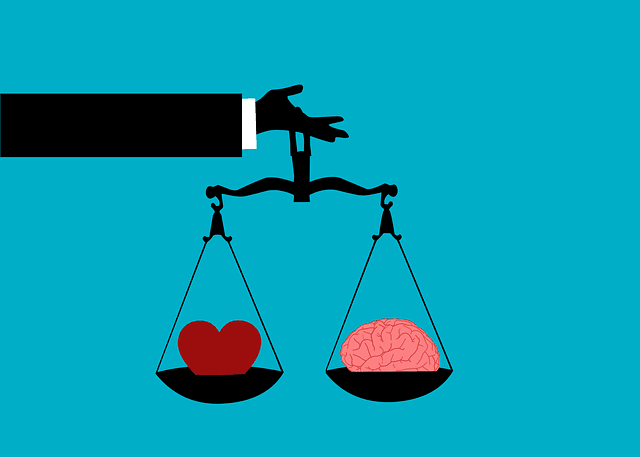The Pitfalls of Being the Smartest Person in the Room
By Ann Elliott

The rational approach for decision making is a top-notch solution for data related problems. Logic is a valuable tool for black and white situations. However, this logic driven approach has a negative impact on people when you ignore feelings and emotions.
A logical method of decision making might work, if others are not involved in helping you achieve your goals. Now really. How often does that happen? When others are involved, you shortchange the possibilities by relying only on the data channel of logic.
People build relationships on an emotional level as well as an intellectual one. Your own feelings and the feelings of others count significantly.
The business leader who put her head down and marched ahead with a decision based solely on data created a situation with landmines. She ignored the team she depends upon to implement her new decision. For instance, employees with young children struggle to get their children to daycare or school on time in the morning. Scheduling a staff meeting at 7:45 a.m. causes hardship and mental distress for the members of the team with young children. The hard data confirms the business does not have many incoming calls or customers at this time of day. Not taking into consideration the feelings of those employees impacted, impacts the health of the organization. This stifles loyalty. It dampens motivation.
LIMITATIONS OF RATIONAL THINKING
There is a high price to pay for leadership based solely on hard data and rational thinking. Logic has its place. It has its limitations that can be costly. People responsible at all levels of the organization feel unappreciated. Their contribution to the success of the organization counts for little if you cannot measure it quantitatively.
Emotions matter little. People participate fully with their head, heart, and hands when they feel heard. Ignoring emotions does not give you access to reasons for why someone chooses something that appears illogical. People are not robots.
Persuasion and motivation are at risk. Spread sheets and hard-core analytics tell only part of the story. Emotions motivate people. Passion persuades and analysis provides proof.
Details take priority at the expense of the big picture. The nuances of the big picture fade into the background. You miss vital information which impacts the whole when all that counts is logic and reason.
Relationships suffer. With the entire focus on decisions by logic, people become irrelevant. Achieving the goal is the only thing that counts. People are insignificant except to achieve your goals.
Creativity languishes. Logic is a great tool for solving problems. It is a bad choice for innovation and fresh ideas. A willingness to explore the wildest ideas which are illogical led to game-changing strategies.
People feel unappreciated. People at all levels of the organization contribute to your success in large and small ways. All their contributions are not quantifiable and translated to data on a spread sheet. Unexpressed gratitude leads to unhappy employees who seek better work environments.
THE ROOT OF THE PROBLEM
In the world of business, leaders rely heavily on cold hard data to make decisions. This skill is invaluable in making important decisions. The danger is making logic the sole decision-making criteria. It is a skill taken too far that becomes a detriment.
If you notice any of the following happening to you, it is a good indicator that you are allowing the extreme use of your skill of rational thinking to undermine your efforts
- Frustration because people do not respond fast enough
- Annoyed when others do not use logic when it is patently obvious to everyone
- Intellectually arrogant because you are the smartest person in the room
- Numb to the feelings of others and lack of concern about how they feel
WHERE DO YOU START?
The best way to start to deal with this situation is to recognize that a strong, rational mind is a great strength. It helps you solve problems and find the best course of action. Also, it is critical to acknowledge that logic is not the only information channel. Emotion and feelings convey important messages, too. Dealing with people and emotions can at times be a bit messy. It may take longer to arrive at a good decision when you incorporate the element of emotion.
Finding balance is the key. Logic is a valuable tool, but it is important to be aware of its limitations and to factor in other aspects of a situation, like emotions and intuition.
Adopt the mindset of an explorer: Be curious about all the factors impacting a decision. Be especially curious about the weirdest ideas.
Look at the situation from the point of view of others: What could someone be feeling without the hard-core data?
Use the ancient wisdom you have accumulated over your lifetime: What is most important in this situation? What would your wiser, elder self say to you?
Not so long ago, someone I know was deciding on the surgeon for an important operation. As the patient, it is important to you, right? The main criteria were his likeability and bedside manner. The fact that he had poor reviews and the medical board remanded him did not seem to factor in the decision-making process.
In his article, “Business Decision-Making: Gut Instinct or Hard Data?,” at www.business.com,Sean Peek has this to say about making good decisions:
Making decisions is complex. It involves different processes: reason, data, intuition, and emotion. Instead of choosing one over the other, merge using your gut with gathering facts and data to make the most informed and confident business decisions possible.
IN THE FINAL ANALYSIS
With practice you can make more informed decisions by considering the two information channels: hard core data and emotion. It is unusual for it to be an either/or situation. If you need to bring people alongside you to achieve your mission, being the smartest person in the room can backfire.
Share this resource



